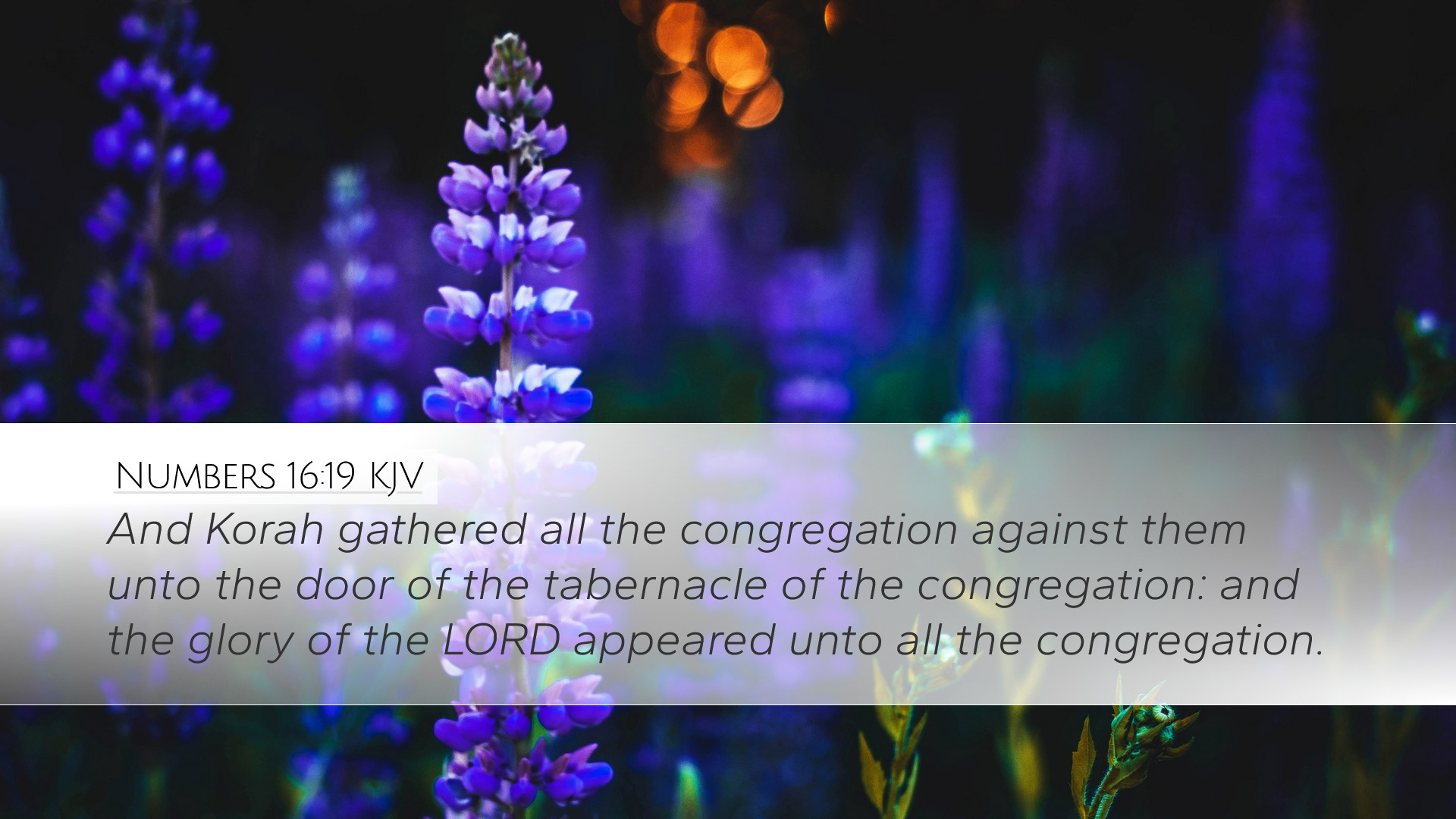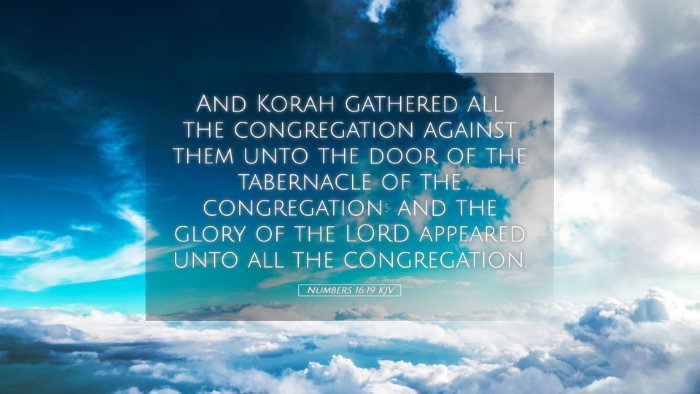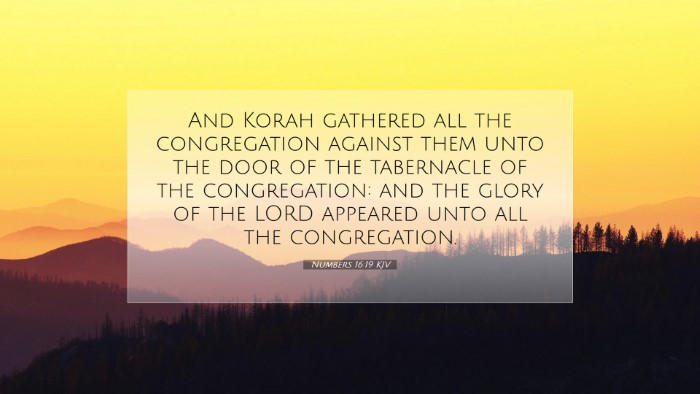Commentary on Numbers 16:19
Verse Context: Numbers 16:19 states, "And Korah gathered all the congregation against them unto the door of the tabernacle of the congregation: and the glory of the LORD appeared unto all the congregation." This verse marks a climactic moment in the rebellion against Moses and Aaron, symbolizing a significant challenge to divinely appointed authority.
Introduction
This commentary draws insights from public domain sources, especially works by Matthew Henry, Albert Barnes, and Adam Clarke. We explore the themes of authority, rebellion, divine judgment, and the manifestation of God's glory in the context of corporate worship and accountability.
Exegesis of the Text
Gathering of the Congregation: The phrase "Korah gathered all the congregation" indicates an organized effort to oppose Moses and Aaron. Matthew Henry emphasizes that this gathering wasn’t merely spontaneous; it involved instigation and persuasion, revealing Korah's fervent ambition.
Proximity to Authority: The location "unto the door of the tabernacle" is significant as it reflects a direct challenge to the leaders whom God had appointed. Adam Clarke comments on how approaching the tabernacle represented a claim to spiritual authority, which was inappropriate given Korah's unappointed status.
Theological Implications
This verse encapsulates the struggle between divine authority and human ambition. Barnes notes that the rebellion is not merely against Moses but ultimately against God. This demonstrates the gravity of opposing God's ordained leadership, which is a recurrent theme throughout Scripture.
The Glory of the Lord
Manifestation of God's Presence: The phrase "the glory of the LORD appeared" signifies God's intervention in human affairs. As highlighted by Henry, this is not just a display of divine power but also an indication of God's judgment. The context illustrates that God will not remain passive in the face of rebellion against His chosen ones.
Impact on the Congregation: The appearance of God's glory is a moment of awe and fear for the congregation. Clarke suggests that this glorious appearance serves multiple purposes: it reassures the faithful and warns the rebels of God's impending judgment. The profound seriousness of the covenant community's accountability before God is emphasized here.
Reflection on Authority and Rebellion
- Human Authority vs. Divine Authority: The struggle depicted in this passage invites reflection on the nature of authority. Barnes cautions that those who seek to usurp or undermine God-given authority act at their own peril.
- Corporate Responsibility: The gathering of the congregation indicates that rebellion often has corporate dimensions. Clarke warns that individuals may be persuaded to follow charismatic leaders without considering the implications of their actions before God.
- The Weight of Leadership: For leaders, this passage serves as a reminder of their accountability to uphold God’s standards. Henry observes that leaders must be careful to lead according to God’s directives lest they face judgment for misguiding their people.
Practical Applications
For Pastors and Leaders: The discernment required in leadership roles cannot be understated. This scripture challenges leaders to remain faithful and to seek God's will continually, as they navigate challenges from within and outside their congregations.
For Students and Theologians: This passage offers rich material for theological reflection on authority within the church. The tension between divine and human authority presents an area for exploration in ecclesiology and the nature of community governance in religious contexts.
Conclusion
The events surrounding Numbers 16:19 serve as a powerful reminder of the seriousness with which God views rebellion against His chosen leaders. The display of His glory is both a comfort to those who remain faithful and a warning to those who would challenge divine authority. In every generation, the lessons of Korah’s rebellion resonate as reminders of accountability, faithfulness, and the weightiness of God’s call.


